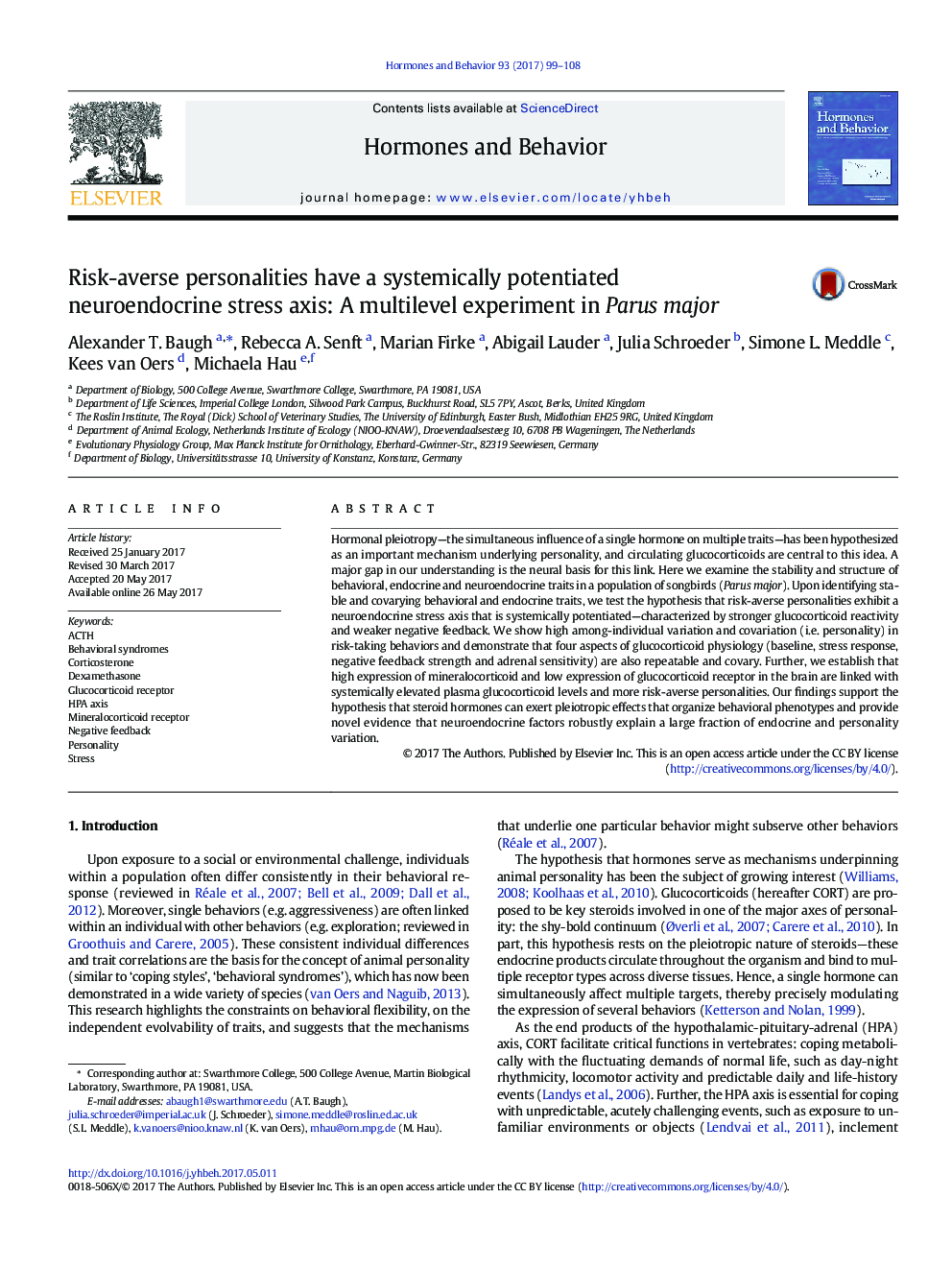| کد مقاله | کد نشریه | سال انتشار | مقاله انگلیسی | نسخه تمام متن |
|---|---|---|---|---|
| 4931129 | 1432747 | 2017 | 10 صفحه PDF | دانلود رایگان |
- Hormonal pleiotropy is proposed as a mechanism for animal personality.
- We repeatedly measured behavior, CORT dynamics and neural MR/GR densities.
- MR/GR densities predict CORT dynamics and together predict behavioral variation.
- Birds with lower GR and more potentiated HPA dynamics were more risk averse.
- Stable and covarying behavioral and endocrine traits support hormonal pleiotropy.
Hormonal pleiotropy-the simultaneous influence of a single hormone on multiple traits-has been hypothesized as an important mechanism underlying personality, and circulating glucocorticoids are central to this idea. A major gap in our understanding is the neural basis for this link. Here we examine the stability and structure of behavioral, endocrine and neuroendocrine traits in a population of songbirds (Parus major). Upon identifying stable and covarying behavioral and endocrine traits, we test the hypothesis that risk-averse personalities exhibit a neuroendocrine stress axis that is systemically potentiated-characterized by stronger glucocorticoid reactivity and weaker negative feedback. We show high among-individual variation and covariation (i.e. personality) in risk-taking behaviors and demonstrate that four aspects of glucocorticoid physiology (baseline, stress response, negative feedback strength and adrenal sensitivity) are also repeatable and covary. Further, we establish that high expression of mineralocorticoid and low expression of glucocorticoid receptor in the brain are linked with systemically elevated plasma glucocorticoid levels and more risk-averse personalities. Our findings support the hypothesis that steroid hormones can exert pleiotropic effects that organize behavioral phenotypes and provide novel evidence that neuroendocrine factors robustly explain a large fraction of endocrine and personality variation.
Journal: Hormones and Behavior - Volume 93, July 2017, Pages 99-108
